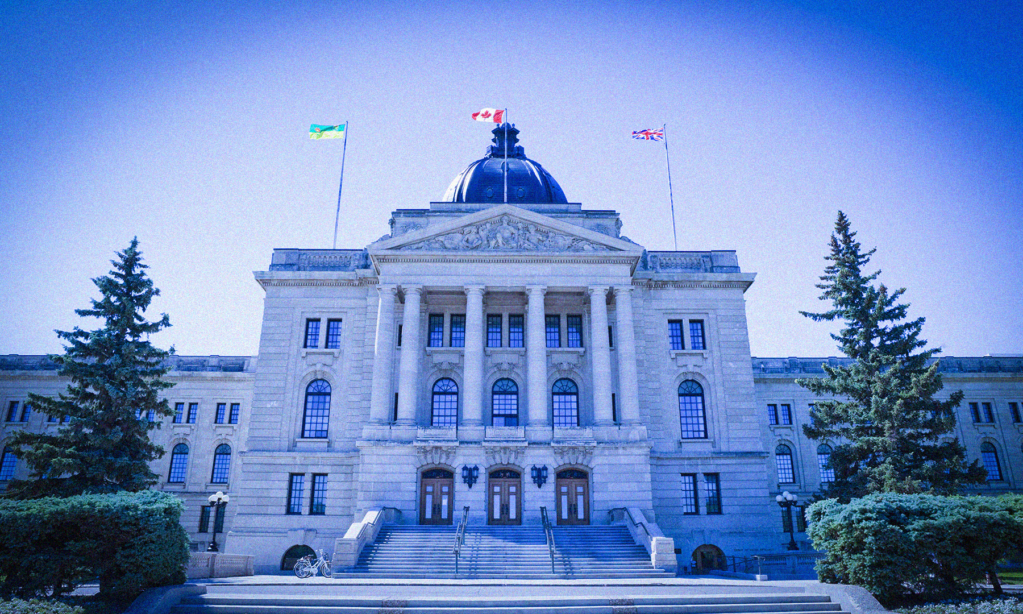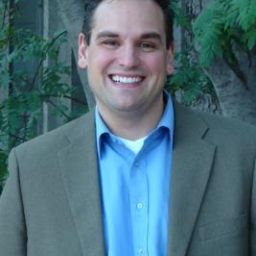Saskatchewan politics over the past two decades has become something of a quagmire for students of political history.
Prior to the Saskatchewan Party’s 2007 election victory, the province oscillated between a social democratic, left of centre coalition in the Cooperative Commonwealth Federation/New Democratic Party and whatever party could capture the right-of-centre vote in a particular election. In 1964, the provincial Liberals held the right-of-centre vote. In 1982, the Progressive Conservatives captured that vote.
The problems for both of these parties, however, is that they often fractured and divided when out of power, thus splitting right-wing voter allegiances, allowing the CCF/NDP to win seats with less than fifty-percent of the vote, especially in ridings where conservative voters outnumbered non-conservative ones. The Saskatchewan Party, the creation of disgruntled Liberals and Progressive Conservatives in 1997 was designed to change the equation, ending the thorny questions of “vote-splitting” or “dividing the right” and thus allowing a united conservative coalition to handily win provincial elections.
For the most part, this calculation has worked. Since its creation in 1997, the Saskatchewan party has become the de facto governing party in the province, dominating provincial politics in a manner that has been unseen since the first half of the twentieth century when the big Liberal machine controlled political life in the province. And dominate it has.
The Saskatchewan party won convincingly in 2011, 2016, and again in 2020. Its connections with business and wealth in the province allow it to regularly out-fundraise the NDP and other competing parties. Its leaders, first Premier Brad Wall and current Premier Scott Moe, routinely rank as the most popular provincial leaders in the country, and the party continues to poll well over 50 percent of the popular vote, notwithstanding its long record in government.
Yet, the results of three August by-elections might be the reflections of small cracks in the Saskatchewan Party’s political dominance. To be sure, these cracks may be nothing or simply patched over with a series of government policy victories. Yet, there are clearly some political shifts in the province that have been highlighted in the by-elections of 2023.
We should not interpret by-election results as a dress rehearsal for the next general election. Turn-out in by-elections is usually low and less well-resourced parties have the advantage of being able to focus all their time and money on a handful of races, rather than the entire province. Voters can also register their anger or frustration at the government without fear that the government will be replaced or defeated.
Under these circumstances, perhaps it is less surprising that the SK NDP won two of the three by-elections in the city of Regina, while the upstart and ultra-right Saskatchewan United Party (SUP) placed second in the largely rural riding of Lumsden-Morse. Nevertheless, the Saskatchewan party, while showing some weakness in urban Saskatchewan, continued to demonstrate its strength in rural Saskatchewan, winning Lumsden-Morse with 53.7 percent of the vote. And despite the NDP’s two wins, the Saskatchewan party still easily controls the Legislature, holding 46 of 61 seats. Thursday’s by-elections may not augur a sea change in Saskatchewan politics, but they do offer us some interesting dilemmas that the Saskatchewan party will face going forward.
What happened on the right?
The most existential threat for the Saskatchewan Party after the by-election votes were counted came from the seat that it won, rather than the two seats it lost.
Lumsden-Morse was a seat that the government party won in 2020 with 73.4 percent of the vote. The party lost almost 20 percent of its votes, much of which went to the upstart SUP—a party that formed in the immediate wake of the COVID-19 pandemic. Its base coalesced around the public health policies put in place by the governing party and aligned with the moral panics associated with the lockdowns.
Many of the voters aligned with the SUP clearly found resonance in the message of freedom and choice from its leader, former Saskatchewan Party MLA Nadine Wilson—who was removed from the government caucus because she lied about her vaccine status.
The decline of the COVID-19 pandemic, however, appeared to take some of the wind out of the SUP’s sails until a student in a grade 9 class in the riding took some pamphlets out of a box of material from a Planned Parenthood presentation about sexual education. The pamphlets, designed for older LGBTQ2S+ students were clearly not appropriate for younger students and, while accounts vary, were never actually part of Planned Parenthood’s presentation.
Nevertheless, the issues of sexual education and Planned Parenthood became a focal point for the SUP, and it used this issue to generate a narrative on parent choice in education. It is not a coincidence that the same moral talking points that the far right used during the pandemic—freedom of choice, government overreach, and the “woke elites”—found their way into this issue. While this issue was front and center, other important rural concerns including the ongoing drought’s effects on the agricultural sector, declining rural populations, rural healthcare, access to medical professionals, and high quality public education were largely ignored.
What happened on the left?
In Regina, voters took a decidedly different approach to the by-elections. In the province’s capital city, the government’s budget message focusing on the economy (Growth that Works for Everyone) became something of a red-herring, as voters struggling with inflationary pressures stated quite clearly that they were not feeling the upside of that growth.
In the spring, the government had proudly boasted of a $1 billion surplus, then made the choice to use the vast majority of it to pay down debt. And while that decision certainly made Bay Street happy, it did little to reassure working people that the government was on their side. This narrative became even louder when one of the retiring MLAs–Mark Docherty–stated publicly that the government’s message of growth working for everyone was not resonating with people’s lived experience.
Moreover, the government’s decision to fritter away $34,000 on what many considered to be misleading advertising regarding teachers’ salaries during the by-elections may have looked like naked opportunism to many voters in Regina.
Faced with a governing party that has struggled to address the lived reality of people in the province’s cities, voters turned to the NDP, with its new leader Carla Beck claiming two much-needed victories. While bolstering a small opposition with two additional MLAs will be a much needed boost for the party, the real challenge will be for the NDP to capitalize on these gains. Going forward, the NDP will certainly need clear policy solutions to address what is a real cost of living squeeze for working people in the province.
What does this all mean?
After the Saskatchewan Party’s losses in Regina and narrower victory in Lumsden, a contrite Scott Moe performed a mea culpa, while pleading with his supporters not to split the vote in the future. In his remarks, Moe attempted to placate both urban NDP voters and rural SUP voters by conceding that his government needed to do more on issues of housing and affordability in the cities, while also promising to address the SUP’s moral panic over inappropriate sexual education materials in schools.
This balancing act won’t last long. Mr. Moe will not be able to appease urban NDP-leaning voters without alienating rural SUP-leaning supporters and vice-versa. Eventually he will have to decide whether to adopt a strategy that can win in urban Saskatchewan or one that can shore up rural support by addressing the concerns of the SUP. It’s all very deja-vu for the Saskatchewan party. In 1999, the upstart Saskatchewan party shocked everyone by winning almost all the rural ridings in the province. Recognizing that the only place to grow was within urban Saskatchewan, then-leader Elwin Hermanson obsessed with how to moderate the party’s right-wing, rural image to appeal to urban voters.
It would be under the cautious stewardship of Brad Wall that the Saskatchewan party would finally be embraced by urban Saskatchewan after an overhaul in party policy designed specifically to appeal to the cities. Scott Moe’s Saskatchewan party appears to face the opposite dilemma, how to now regain the support of a very rural-right wing without alienating too many urban voters.
If the past is any guide, Mr. Moe will probably move to guard his right flank, as he did after the last provincial election when the upstart right-wing Buffalo Party appeared to gain some traction in a few rural seats. On election night, 2020, Mr. Moe singled out voters in rural areas who had placed their vote with the Buffalo Party, stating that he “heard them” and that he “shared their frustration.” The Premier made similar comments last week, when he singled out the 23 percent of voters who supported the up-start and far-right Saskatchewan United Party, warning them that splitting the right-wing vote might result in “something that you don’t like”—an obvious reference to the potential for an NDP government if the province’s right-wing vote were to fracture.
Given that the Saskatchewan party’s entire raison d’etre has been to consolidate the province’s conservative voters behind a single political party, the problem of the SUP may weigh more heavily on Scott Moe’s mind than the problem of the urban vote. The question will be whether the Saskatchewan party is prepared to engage in the kind of toxic culture war rhetoric that animates SUP supporters.
With some of the highest instances of teen pregnancy, HIV transmission and sexual violence in the country, politicizing sex education in the manner desired by the SUP will only exacerbate Saskatchewan’s already abysmal record on sexual and reproductive health and only serve to further alienate the urban vote.
But with the NDP effectively shut-out of rural Saskatchewan and the path to government still possible without winning seats in Regina or Saskatoon, the political calculus may be that the problems of Saskatchewan’s cities can continue to be given less attention by this government than those issues that might woo rural SUP voters back into the Saskatchewan party camp.









